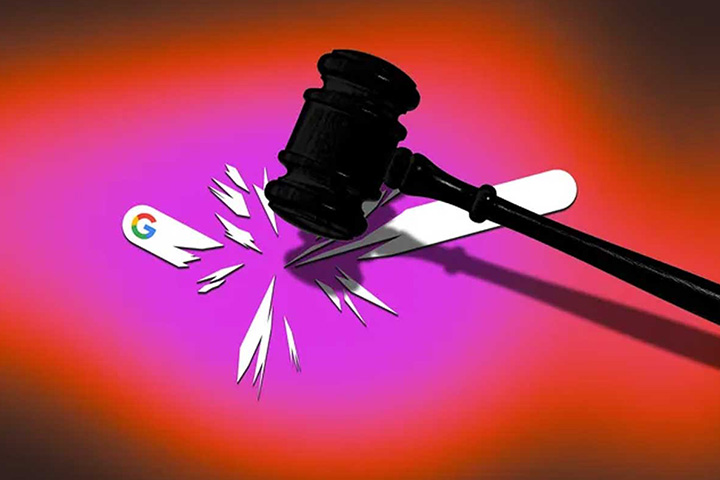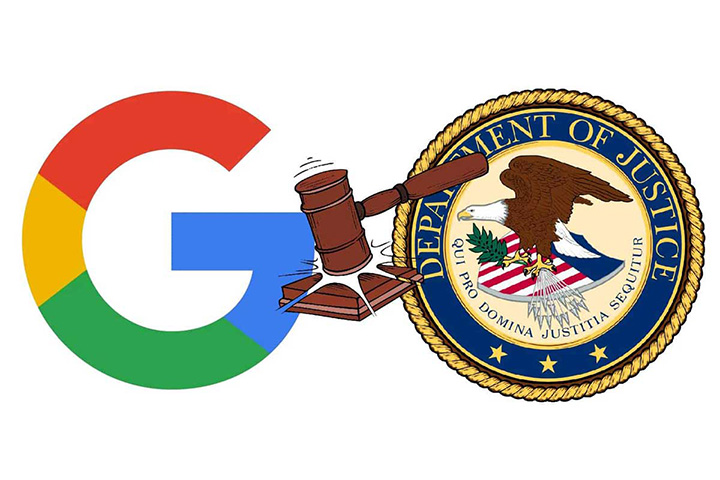Recently, a U.S. District Court declared Google a “monopolist” for violating U.S. antitrust laws in its efforts to remain the default search engine on devices and web browsers. Following this decision, the U.S. Department of Justice is planning to address Google’s anti-competitive behavior, with proposed solutions including separating Android, Chrome, and Google Play from Google.
The U.S. Department of Justice has introduced a new “proposed remedy framework” to correct Google’s antitrust violations in the country. This framework aims to address damages caused by Google’s distribution of search, revenue sharing, production and display of search results, scale, advertising monetization, and data collection and usage.
Among the proposed remedies is preventing Google from using products like Chrome, Play, and Android to create an advantage for Google Search and its related products. Other solutions include allowing websites to opt out of appearing in Google’s AI-powered products, such as AI-generated results in Google Search.
In response, Google stated that the Department of Justice’s “radical and far-reaching proposals” could harm consumers, businesses, and developers. While Google intends to fully respond to the final proposals, it said that the Department of Justice “is currently making demands that go far beyond the specific legal issues of this case.”
Google says it has invested billions in Chrome and Android. Since these two products help users access the web and use Google’s offerings, Google provides them and their source code for free, and few companies have the ability or motivation to maintain their open-source status or continue investing in them. Google warns that separating Chrome and Android would change their business models, raise device prices, and weaken Android and Google Play as competitors to Apple’s iPhone and App Store.
Below is a summary of the various remedies proposed by the Department of Justice to counter Google’s anti-competitive behavior:

Remedy for Google’s Search Distribution and Revenue Sharing
The Department of Justice believes the starting point to address Google’s illegal behavior is to eliminate its impact on search distribution. For over a decade, Google has controlled the most popular distribution channels and given its competitors little opportunity to compete for user acquisition. Similarly, Google’s rivals cannot compete for these distribution channels, as Google’s revenue-sharing payments, fueled by its monopoly, discourage partners from directing requests to Google’s rivals. This likely refers to the billions of dollars Google pays Apple to remain the default search engine on the iPhone.
To address this, the Department of Justice is considering several solutions. One involves limiting or prohibiting default agreements, pre-installation agreements, and other search-related revenue-sharing arrangements. A second set of remedies includes “behavioral and structural solutions” to prevent Google from using products like Chrome, Play, and Android to give an advantage to Google Search and related products and features compared to competitors or newcomers.
Remedy for Google’s Data Collection and Usage
The U.S. Department of Justice states that Google’s illegal behavior has enabled it to collect and use data at the expense of its search engine competitors. To address this, the Department of Justice is exploring a solution that would require Google to make its listings, data, feeds, and search models available through an API for others to use. This solution would also make Google’s search results, features, ads, and even the underlying ranking signals available to the public.

Remedy for Google’s Production and Display of Search Results
Google’s harm has extended to the development of general search features, including generative AI. The U.S. Department of Justice states, “These results and features often depend on websites and content created by third parties who have little bargaining power against Google’s monopoly and cannot risk retaliation or removal from Google.”
To address this, the Department of Justice proposes that Google be prohibited from using contracts to weaken its competitors’ access to web content. It also wants to level the playing field by requiring Google to allow websites that are crawled for Google Search to opt out of training or display in any of Google’s AI-powered products or features in Google Search.
Remedy for Google’s Scale and Advertising Monetization
Google’s monopolistic behavior has undermined advertisers’ choice of search providers and competitors’ ability to monetize search advertising. This has allowed Google to profit from text ads while reducing their quality.
The proposed remedies include addressing Google’s use of scale and requiring Google to license or sell its ad feed independently from its search results.

Conclusion
As mentioned, Google will present its defense to the court. Overall, it appears Google is in for a long legal battle, and the future of Android and Chrome could be significantly different from their current state.
Source: Android Authority
